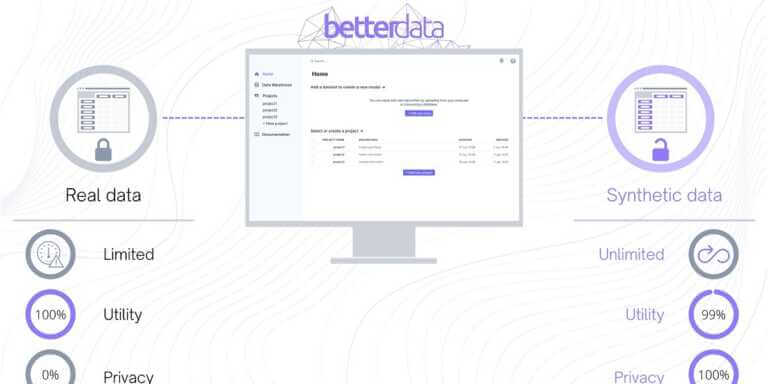
BLOG
top 5 takeaways for entrepreneurs from Temasek’s e-Conomy SEA report

share:
This year’s cornerstone industry report on Southeast Asia’s internet economy is out. Google and Temasek launched the report in 2016 as a multi-year research program, and this year Bain & Company have joined as lead research partner.
Didn’t get around to reading it? Don’t worry. We’ve summarised some of the key takeaways of the report for Southeast Asian entrepreneurs in the internet economy space.
1. The market size of the internet economy in Southeast Asia (in terms of gross merchandising value) remains huge – and will likely grow to $300B by 2025.
The report focuses on the online travel (flights, hotels, and vacation rentals), online media (advertising, gaming, subscription music, and video-on-demand), ride-hailing (transport and food delivery), e-commerce, and digital financial services (payments, remittance, lending, investment, and insurance).
In these pillars alone, the internet economy has exceeded $100B in GMV in 2019, and is projected to hit $300B by 2025.
This is great news for internet economy startups. Southeast Asians are now the world’s most engaged mobile Internet users, and about one out of two internet users in the region are involved in the internet economy. It’s clear the internet economy pie is huge enough for plenty of companies to grab a piece, and only continues to grow in size.
2. If you’re looking for where to grow in Southeast Asia, Indonesia and Vietnam are the pacesetters.
Growth of the region’s internet economy has accelerated in the past few years, but Indonesia and Vietnam are clearly ahead of the pack both in terms of potential market size and funding.
Indonesia’s internet economy is worth an estimated $40B, having expanded at an average growth rate of 49% a year since 2015. Indonesia is also home to many unicorn success stories such as Bukalapak, Gojek, Tokopedia, and Traveloka.
Vietnam is also emerging as a strong digital economy; the GMV of its internet economy is likely to account for over 5% of the entire country’s GDP in 2019. E-commerce is particularly strong in Vietnam. Startups in Vietnam raised over $1B in funding over the last 4 years, and 2019 is likely to be a record year.
Aside from these two superstars, Singapore remains a strong centre for well-funded startups and unicorns. Singapore’s strong spending power means that despite Singapore’s small size, its internet economy is comparable in size to the likes of its larger neighbours such as Indonesia.
On the flipside, funding for the internet economy in Thailand, Malaysia, and the Philippines lags behind. One reason may be regulatory uncertainties. In the ride-hailing sector for instance, the regulatory landscape in Indonesia, Singapore, and Vietnam has paved the way for unicorns like Grab and Gojek to flourish, whereas the same certainty is lacking in other Southeast Asian countries.
3. Focus on areas beyond metro centres, as growth in those areas will outpace growth in metro centres between now and 2025.
Up until now, the larger and more densely populated urban areas have dominated the internet economy in terms of active users and e-commerce orders, accounting for over 50% of the internet economy. These areas include Jabodetabek in Indonesia, Kuala Lumpur and Kluang Valley in Malaysia, Metro Manila in the Philippines, all of Singapore, Greater Bangkok in Thailand, and Hanoi and Ho Chi Minh City in Vietnam.
However, now that many internet economy businesses have established operations in these big cities, the focus has now shifted to the non-metro areas. Tokopedia, for example, intends to develop a “digital villages” initiative together with the West Java administration.
The internet economy in the beyond-metro areas is estimated to grow 4x between 2019 and 2025 – twice as fast as the projected growth in metro areas.
We are likely to see tech companies in the region take advantage of this, particularly the established unicorns and the “aspiring unicorns” valued between $100M and $1B which have already dominated the metro areas and are looking for further expansion.
4. Consumer behaviour has fundamentally changed, and internet companies need to get creative to attract and retain users.
Ten years ago, almost four out of five Southeast Asians had no access to the internet. Today, it has become the norm across the region to order goods and services online.
This means internet startups have had to shift tactics to hold users’ attention. The top e-commerce companies in the region have turned to a variety of strategies, from regular online promotions and shopping festivals, to using entertainment and gamification as a promotional strategy. Online shopping apps will live-stream “unboxing” videos inside their apps, and launch minigames which let online shoppers play together to unlock discounts.
Consumers no longer just use e-commerce for one-off big ticket items like electronics – they are daily users, with over 5 million orders being placed daily in the region.
5. Capital for internet economy startups continues to roll in, despite funding activity slowing down globally.
Although global venture funding in 2019 has weakened compared to the same period a year earlier, funding in Southeast Asia remains strong. In the first half of 2019, Southeast Asian internet companies raised $7.6B, around 7% more than in the first half of 2018. Funding for the internet economy in the region has grown beyond earlier predictions, which has attracted even stronger funding in a positive cycle.
The average early-stage deal size has doubled over the last three years – seed rounds have gone from $500k on average in 2016 to $800k in 2019, and series A deals have doubled from $2M to $4M in that same period.
The “funding gap” between series B and series C that was oft-talked about in recent years has largely been resolved, and the gap has now moved more to the series C and D stage. Many VCs are also raising growth funds to invest in this space.
final thoughts
The report’s findings in this area certainly mirrors what we’re seeing in our practice on the ground here in Singapore. We expect investment activity to remain strong regionally, bolstered also by the region’s successful unicorns pumping money back into the ecosystem.
Positive reports from industry heavyweights such as Bain and Google also affirms our own decision to have a presence in the Southeast Asia market. Do you have a budding startup and want to chat with one of our team? Book a time to talk to one of our technology and VC lawyers.
explore our other blog posts

